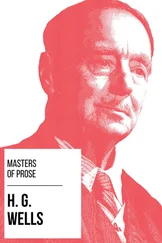to be beaten gold just in order to make it a fitting setting for
yours. There you will be, in an inner temple. I want to enrich
it with hangings and gladden it with verses. I want to fill it
with fine and precious things. And by degrees, perhaps, that
maiden distrust of yours that makes you shrink from my kisses,
will vanish. . . . Forgive me if a certain warmth creeps into my
words! The Park is green and gray to-day, but I am glowing pink
and gold. . . . It is difficult to express these things."
Part 4
They sat with tea and strawberries and cream before them at a
little table in front of the pavilion in Regent's Park. Her
confession was still unmade. Manning leaned forward on the
table, talking discursively on the probable brilliance of their
married life. Ann Veronica sat back in an attitude of
inattention, her eyes on a distant game of cricket, her mind
perplexed and busy. She was recalling the circumstances under
which she had engaged herself to Manning, and trying to
understand a curious development of the quality of this
relationship.
The particulars of her engagement were very clear in her memory.
She had taken care he should have this momentous talk with her on
a garden-seat commanded by the windows of the house. They had
been playing tennis, with his manifest intention looming over
her.
"Let us sit down for a moment," he had said. He made his speech
a little elaborately. She plucked at the knots of her racket and
heard him to the end, then spoke in a restrained undertone.
"You ask me to be engaged to you, Mr. Manning," she began.
"I want to lay all my life at your feet."
"Mr. Manning, I do not think I love you. . . . I want to be very
plain with you. I have nothing, nothing that can possibly be
passion for you. I am sure. Nothing at all."
He was silent for some moments.
"Perhaps that is only sleeping," he said. "How can you know?"
"I think--perhaps I am rather a cold-blooded person."
She stopped. He remained listening attentively.
"You have been very kind to me," she said.
"I would give my life for you."
Her heart had warmed toward him. It had seemed to her that life
might be very good indeed with his kindliness and sacrifice about
her. She thought of him as always courteous and helpful, as
realizing, indeed, his ideal of protection and service, as
chivalrously leaving her free to live her own life, rejoicing
with an infinite generosity in every detail of her irresponsive
being. She twanged the catgut under her fingers.
"It seems so unfair," she said, "to take all you offer me and
give so little in return."
"It is all the world to me. And we are not traders looking at
equivalents."
"You know, Mr. Manning, I do not really want to marry."
"No."
"It seems so--so unworthy"--she picked among her phrases "of the
noble love you give--"
She stopped, through the difficulty she found in expressing
herself.
"But I am judge of that," said Manning.
"Would you wait for me?"
Manning was silent for a space. "As my lady wills."
"Would you let me go on studying for a time?"
"If you order patience."
"I think, Mr. Manning . . . I do not know. It is so difficult.
When I think of the love you give me--One ought to give you back
love."
"You like me?"
"Yes. And I am grateful to you. . . ."
Manning tapped with his racket on the turf through some moments
of silence. "You are the most perfect, the most glorious of
created things--tender, frank intellectual, brave, beautiful. I
am your servitor. I am ready to wait for you, to wait your
pleasure, to give all my life to winning it. Let me only wear
your livery. Give me but leave to try. You want to think for a
time, to be free for a time. That is so like you, Diana--Pallas
Athene! (Pallas Athene is better.) You are all the slender
goddesses. I understand. Let me engage myself. That is all I
ask."
She looked at him; his face, downcast and in profile, was
handsome and strong. Her gratitude swelled within her.
"You are too good for me," she said in a low voice.
"Then you--you will?"
A long pause.
"It isn't fair. . . ."
"But will you?"
"YES."
For some seconds he had remained quite still.
"If I sit here," he said, standing up before her abruptly, "I
shall have to shout. Let us walk about. Tum, tum, tirray, tum,
tum, tum, te-tum--that thing of Mendelssohn's! If making one
human being absolutely happy is any satisfaction to you--"
He held out his hands, and she also stood up.
He drew her close up to him with a strong, steady pull. Then
suddenly, in front of all those windows, he folded her in his
arms and pressed her to him, and kissed her unresisting face.
"Don't!" cried Ann Veronica, struggling faintly, and he released
her.
"Forgive me," he said. "But I am at singing-pitch."
She had a moment of sheer panic at the thing she had done. "Mr.
Manning," she said, "for a time--Will you tell no one? Will you
keep this--our secret? I'm doubtful-- Will you please not even
tell my aunt?"
"As you will," he said. "But if my manner tells! I cannot help
it if that shows. You only mean a secret for a little time?"
"Just for a little time," she said; "yes. . . ."
But the ring, and her aunt's triumphant eye, and a note of
approval in her father's manner, and a novel disposition in him
to praise Manning in a just, impartial voice had soon placed very
definite qualifications upon that covenanted secrecy.
Part 5
At first the quality of her relationship to Manning seemed moving
and beautiful to Ann Veronica. She admired and rather pitied
him, and she was unfeignedly grateful to him. She even thought
that perhaps she might come to love him, in spite of that faint
indefinable flavor of absurdity that pervaded his courtly
bearing. She would never love him as she loved Capes, of course,
but there are grades and qualities of love. For Manning it would
be a more temperate love altogether. Much more temperate; the
discreet and joyless love of a virtuous, reluctant, condescending
wife. She had been quite convinced that an engagement with him
and at last a marriage had exactly that quality of compromise
which distinguishes the ways of the wise. It would be the
wrappered world almost at its best. She saw herself building up
a life upon that--a life restrained, kindly, beautiful, a little
pathetic and altogether dignified; a life of great disciplines
and suppressions and extensive reserves. . .
But the Ramage affair needed clearing up, of course; it was a
flaw upon that project. She had to explain about and pay off
that forty pounds. . . .
Then, quite insensibly, her queenliness had declined. She was
never able to trace the changes her attitude had undergone, from
the time when she believed herself to be the pampered Queen of
Fortune, the crown of a good man's love (and secretly, but nobly,
worshipping some one else), to the time when she realized she was
in fact just a mannequin for her lover's imagination, and that he
cared no more for the realities of her being, for the things she
felt and desired, for the passions and dreams that might move
her, than a child cares for the sawdust in its doll. She was the
actress his whim had chosen to play a passive part. . . .
It was one of the most educational disillusionments in Ann
Veronica's career.
But did many women get anything better?
Читать дальше












